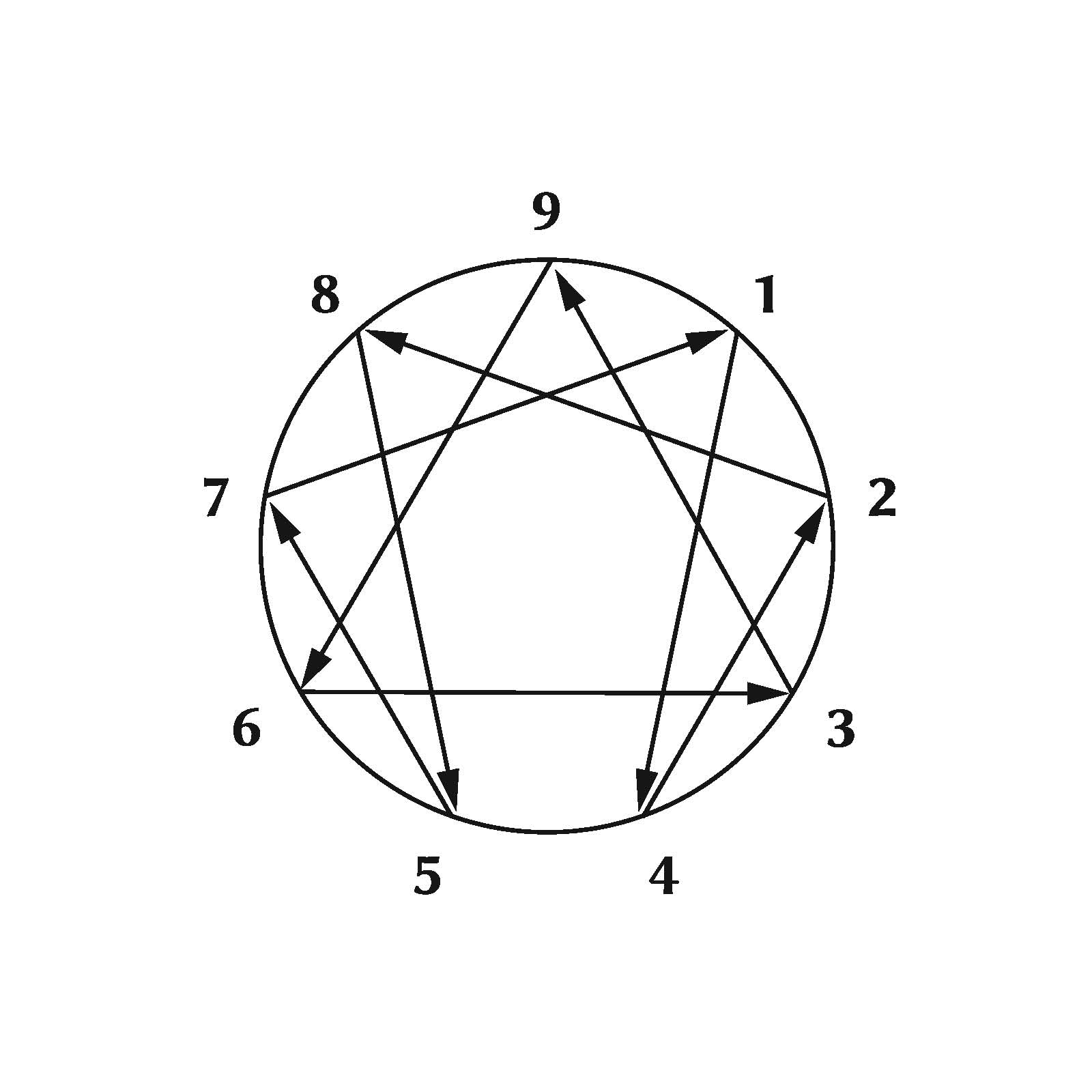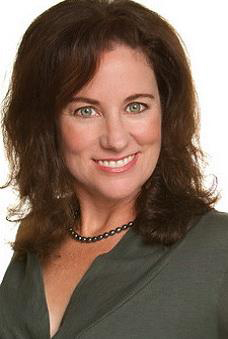Dr. Beatrice Chestnut is a well-known psychotherapist. But she is so much more than that: coach, business consultant and author of 3 books including The Complete Enneagram and The 9 Types of Leadership: Mastering the Art of People in the 21st-Century Workplace.
Dr. Chestnut is the guest expert today and she is sharing tips on how to identify your personality type and how it can help you achieve the success in both the workplace and in relationships. That’s something everyone wants to achieve. We all seek success in our personal and professional lives. Dr. Chestnut’s commentary will at least set your internal wheels in motion — about who you are, and how to approach those goals and so many more. There is an extra content that I have interjected into this essay. The content includes the questions I asked Dr. Chestnut about how a person can dive into Enneagrams and find out which personality type of that individual and a couple more questions after that.
How Knowing Your Personality Type Sets you Up for Success: In love and in work
By Beatrice Chestnut, PhD, psychotherapist,
Rarely has an ancient aphorism provided as useful and timeless a message, as the ancient Greek saying engraved on the temple at Delphi, “Know Thyself.” The idea that studying our own habits and patterns of behavior educated and empowered people to understand themselves and their place in the world was a cornerstone of classical Greek education.
Today, the basic idea that greater happiness and productivity comes from knowing yourself still holds. The more mindful you are of the things you feel, think, and do, the more you understand yourself at a deep level, and the more compassionate you are with yourself, the more you can make conscious choices and live a freer, more satisfying life.
If you can identify your core personality style, you can access a great deal of very helpful information that can help you leverage your natural gifts, address blind spots with greater clarity, and grow to reach more of your higher potential (by seeing what personality quirks may be unconsciously holding your back).
Here are some of the basic strengths and challenges associated with the 9 personality styles connected to the Enneagram personality system, a powerful tool for gaining self-knowledge with roots in ancient wisdom.
Type One
Type Ones are often called Perfectionists or Reformers, excel at determining and doing the right thing, making everything better, and acting in responsible and conscientious ways. But their strong adherence to following the rules can make them overly rigid or excessively self-critical. When they can gain insight into their tendency to over-control their feelings and impulses and judge themselves in punishing ways, they can blend their focus on high ideals of quality with a greater ability to have compassion for themselves and others.
Type Two
Type Two people are called Helpers or the Befriender They excel at creating connections with others and empathizing with and supporting people. But their strong focus on what others need and aligning with what others favor to be likable can cause them to shape-shape shift to please others to the point where they have a hard time accessing what they need or want. When they can gain insight into their tendency to over-focus on other people and under-focus on their feelings and needs, they can work to right the balance by developing a stronger sense of self in relation to others.
Type Three
Type Threes, called Performers or Achievers, excel at getting things done and looking good doing what they do. But their strong focus on goals, tasks, work, and achievement, can make it hard for them to slow down and get in touch with how they feel and who they are apart from their successful image. When they can gain insight into the way they identify with what they “do” more than they leave room for themselves to “be,” they can develop a clearer sense of who they are and engage with people in deeper and more meaningful ways.
Type Four
Type Four individuals are often described as Artists or Individualists. They excel at tapping into deep emotions to express themselves and connect with others in meaningful ways. But their strong focus on noticing what’s missing and longing for distant ideals can make it hard for them to own their strengths and connect with people through what’s positive in the here-and-now. When they can gain insight into the ways they compare themselves with others and set themselves up for disappointment, they can create greater understanding in their relationships through their natural gift for emotional intuition.
Type Five
Type Fives, called Observers or Experts, excel at analyzing data and gaining knowledge as a way to understand themselves and the world. But their strong focus on the intellectual level of experience and their habit of disconnecting from emotion can make it hard for them to create connections through sharing themselves with others. When they can gain insight into the ways they avoid getting emotionally entangled with people out of a fear of being energetically depleted, they can find ways to build stronger relationships based on shared interests and mutual understanding.
Type Six
Type Sixes are often called Contrarians or Loyal Skeptics, excel at forecasting potential threats and problems as a way of being prepared when something dangerous happens. But their strong focus on predicting what might go wrong and imagining worst-case scenarios can make them seem overly negative or paranoid to others. When they can gain insight into the ways they get preoccupied with imagining fear-based outcomes, they can temper their ability to see and solve problems with more faith and trust in others and more courage in doing the things they do.
Type Seven
Type Sevens, called Enthusiasts or Epicures, excel at seeing the positive in everything and imagining optimistic future possibilities. But their strong focus on looking on the “bright side” and feeling good can make them avoid important realities, feelings, and experiences that may not be so happy. When they can gain insight into the value of sinking more deeply into what’s happening in the present moment, even when it doesn’t feel great, they can deepen their appreciation of the truth of their work and relationships.
Type Eight
Type Eight individuals are called Bosses or Challengers, excel at expressing strength and doing big things in a powerful way. But their strong focus on being tough and direct and avoiding vulnerable feelings can make them hard for others to connect with in a deeper way. When they can gain insight into the way their assertive approach can intimidate people, they can moderate their actions to integrate much softer emotions and share more of who they really are inside to create stronger working and personal relationships.
Type Nine
Type Nines, called Mediators or Peacemakers, excel at creating harmony, including different points of view in discussions, and avoiding conflict. But their strong focus on staying comfortable and making sure everyone gets along can make it hard for them to express their opinions, feelings, or agendas, especially when they differ from the people around them. When they can gain insight into the way their supportive approach is based on an over-focus on what others’ want and a under-focus on what they want, they can learn to create stronger bonds with people through stating their desires and preferences.
Stevie Notes: Additional content is here because I asked Dr. Chestnut several questions about how to take this test and how to decide which one you are.
Additional content is here because I asked Dr. Chestnut questions about how to take this test and how to decide which one you are.
Questions:
How does one find out which number person they are?
Is there a quiz?
Is it self-recognition?
Aren’t most people a blend of more than 1 type.
Dr. Chestnut’s reply:
There are different methods for finding one’s type. The best one is self-recognition–reading about the different types and seeing which one fits best. This can be tricky because we have blind spots and so sometimes don’t recognize ourselves, but this is the best.
Many people want to take a test to find out their type. There are tests available online, but most of them aren’t very good. The best free one is at eclecticenergies.com — and the best paid one is through Integrative Enneagram Solutions. However, it’s important to take the results of the test as one data point and not the final answer, because it might be wrong.
And yes, it’s normal to relate to more than one type. Part of what’s great about the Enneagram is that it maps the complexity of the human personality, so we have a main type and then may also relate to “wing” types (the types immediately adjacent to our main type on the diagram) as well as the points we are connected to by the inner lines of the diagram as well as “look-alike” types–types that do the same behaviors but for different reasons.

This is the enneagram diagram that Dr. Chestnut is talking about.
BIO

Beatrice Chestnut, PhD MA is a licensed psychotherapist, coach, and business consultant based in San Francisco. She has a PhD in communication studies, and an MA in clinical psychology. A student of the Enneagram system since 1990, she is author of the books, The Complete Enneagram: 27 Paths to Greater Self-Knowledge, and The 9 Types of Leadership: Mastering the Art of People in the 21st century Workplace. She was President of the International Enneagram Association (IEA) from 2006-2007 and offers trainings on the Enneagram internationally, focusing on using it as a tool for personal transformation.
Follow Dr. Chestnut on these social platforms:
Website: http://beatricechestnut.com/
Facebook: https://www.facebook.com/thechestnutgroup/
Twitter: https://twitter.com/chestnut_group
Linkedin: https://www.linkedin.com/in/beatrice-chestnut-0493602/
For those who would like to learn more about Dr. Chestnut, the best ways are to visit her website. You might want to purchase her latest book too.

The 9 Types of Leadership: Mastering the Art of People in the 21st-Century Workplace.
LA-Story.com would like to express our deep appreciation to Dr. Chestnut for her time and her very interesting essay. I think I want to do more research about Enneagrams and my personal type. I already have nailed down about 4 -5 types that sound like me.
Stevie Wilson,
LA-Story.com
______________________________________________________________________________
DEALS and STEALS(Affiliate Links)
I curate deals that offer bonuses, bargains and great products –and some are very specifically for this site to feature to my audience because I want my audience to get amazing products from great brands! If you purchase via my link, I make a very small percentage for that purchase.
I curate deals that offer bonuses, bargains, and great products –and some are very specifically for this site to feature to my audience because I want my audience to get amazing products from great brands! If you purchase via my link, I make a very small percentage for that purchase.
Sephora Favorites Safe Sun on the Fly
Which skin type is it good for? Normal Oily Combination Dry Sensitive A 15-piece set of Sephora’s favorite sun care products in convenient travel sizes, featuring sunscreen and safe self-tanning options for beautifully bronzed and protected skin plus a waterproof, reusable bag that’s perfect for your summer adventures. Solutions for:
– Sun protection If you want to know more…|
-Have an upcoming trip? Pop this set in your bag for an array of sun protection options to keep you guarded while on the go
Dr. Dennis Gross Skincare C+ Collagen Brighten & Firm Vitamin C Serum 1 oz/ 30 mL (1899202)

Which skin type is it good for? Normal Oily Combination Dry Sensitive A fast-absorbing gel-serum packed with 3-O C vitamin C, collagen amino acids, and a proprietary energy complex to create a smooth and luminous complexion. Solutions for:- Dullness and uneven texture- Fine lines and wrinkles- Loss of firmness and elasticityIf you want to know more… Revive tired-looking skin for a radiant, healthy-looking complexion.
Subscribe to RSS headline updates from:
Powered by FeedBurner
If you are going to feature content from LA-Story.com including images, podcasts or videos including the accompanying text, please respect copyright provisions. We require a notation of content origination (meaning credit tag), a linkback to the specific page & please email the link to stevie@la-story.com before the piece goes live. LA-Story.com, LA-Story Recessionista, Celebrity Stylescope, Celebrity Style Slam Trademark/Copyright 2017-19




These are great ways to break down personality traits that dominate. I think I am a blend but see the strong single types in others. Very cool. Thanks, Stevie.